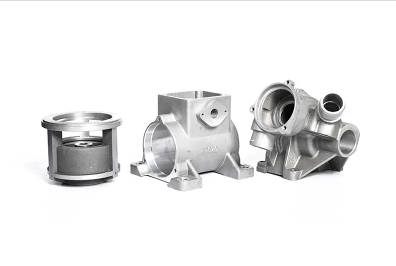Mobile:+86-311-808-126-83
Email:info@ydcastings.com
cast iron soil stack connector
The Role of Cast Iron Soil Stack Connectors in Modern Plumbing
In the world of plumbing, few materials have stood the test of time like cast iron. Renowned for its durability, strength, and resistance to corrosion, cast iron has become a staple in various plumbing applications, particularly in soil stack systems. One of the critical components of these systems is the cast iron soil stack connector, a vital element that ensures efficient waste management in residential and commercial buildings.
What is a Cast Iron Soil Stack Connector?
A cast iron soil stack connector serves as the junction point in sewage or waste pipe systems. It connects different sections of soil stacks—vertical pipes that carry wastewater from fixtures to the main sewer line. The connector is designed to provide a secure joint that can withstand high pressure and temperature changes, making it an ideal choice for waste management applications.
Benefits of Using Cast Iron
One of the most significant advantages of using cast iron soil stack connectors is their exceptional durability. Cast iron is capable of withstanding heavy loads and physical impacts, which is particularly important in buildings where plumbing systems are installed underground or in walls. Additionally, cast iron has excellent sound-dampening properties. This is crucial in urban environments where noise pollution can be a concern; reduced noise from waste movement leads to more comfortable living conditions.
Corrosion resistance is another standout feature. Unlike other materials that may degrade over time due to exposure to moisture and harsh chemicals in sewage, cast iron connectors often last a lifetime without significant deterioration. This longevity translates into less frequent replacements, resulting in lower long-term maintenance costs.
cast iron soil stack connector

Installation and Compatibility
Installing a cast iron soil stack connector is typically straightforward for skilled plumbers, especially when compared to modern plastic alternatives. The connectors can be joined using a variety of methods, including mechanical couplings, lead and oakum joints, or flanges, depending on the specific requirements of the plumbing system. The compatibility of cast iron with other materials, such as PVC and ABS, also enables seamless integration in mixed-material installations, maintaining system integrity.
Environmental Considerations
In recent years, environmental concerns have influenced building practices. Cast iron is a sustainable choice, as it is recyclable and manufactured from natural materials. Moreover, its longevity reduces the need for frequent replacements, subsequently decreasing the environmental footprint associated with production and disposal.
Conclusion
In conclusion, cast iron soil stack connectors play an essential role in modern plumbing systems. Their durability, sound-dampening qualities, and resistance to corrosion make them a preferred choice for both residential and commercial applications. As the plumbing industry continues to evolve, cast iron remains relevant, proving that sometimes, the old ways are the best ways. Ensuring a reliable and efficient waste management system is critical for the health and safety of any building, and cast iron connectors are a cornerstone of that infrastructure. Whether you are designing a new building or renovating an existing one, considering cast iron soil stack connectors will undoubtedly enhance the system's performance and longevity.
-
Why Should You Invest in Superior Pump Castings for Your Equipment?NewsJun.09,2025
-
Unlock Performance Potential with Stainless Impellers and Aluminum End CapsNewsJun.09,2025
-
Revolutionize Your Machinery with Superior Cast Iron and Aluminum ComponentsNewsJun.09,2025
-
Revolutionize Fluid Dynamics with Premium Pump ComponentsNewsJun.09,2025
-
Optimizing Industrial Systems with Essential Valve ComponentsNewsJun.09,2025
-
Elevate Grid Efficiency with High-Precision Power CastingsNewsJun.09,2025











